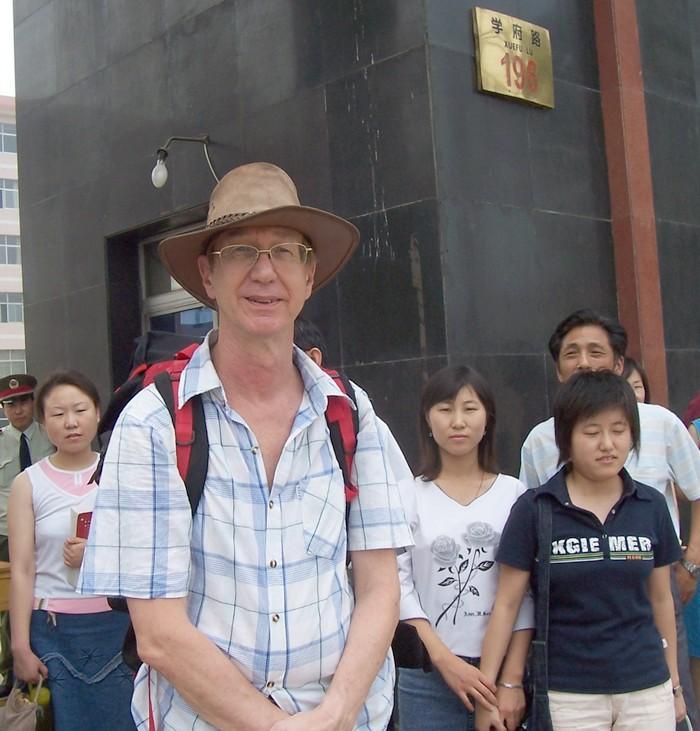| China is the most durable emerging market? | |
|---|---|
| Apr 8, 2008 02:07 | |
 | According to New York Times, those investors who have invested in the emerging markets are suffering from widespread declines. Those who have poured their money in China feel more painful. The statistics suggests that the funds in China have almost lost 40 percent of their value from November to March. However, some investors don't think so. They still think that China is the most durable emerging market in term of breadth. In recent years, the stock prices have become unreasonable, increasing too fast. That's why it has slumped deeply in 2008. Since the investors' expectations are too high, they are disappointed by the recent performance of the stocks. However, they needn't worry about the market because it is experiencing a correction period. What do you think of the emerging markets? How do you view the recent performance of Chinese stock marke? |
| Apr 8, 2008 02:09 | |
 | Here is the article. Source: New York Times. Expensive Lessons in Emerging Markets By PATRICK McGEEHAN Published: April 6, 2008 INVESTORS in emerging-market funds have been scrambling to cope with widespread declines, but the situation has been particularly painful for those who poured money into China. From Nov. 1 through March, the typical foreign stock fund fell about 16 percent, said Bill Rocco, a senior analyst at Morningstar. But during those same five months, most funds that invest primarily in China have lost up to 40 percent of their value, Mr. Rocco said. Those steep losses are a reminder of how risky developing-country funds can be, said Mr. Rocco, who added that he does not believe most individual investors should be making bets on particular markets. “If you’re one of those people who discovered China funds late last summer, it’s been pretty bad,” he said. Diversified emerging-market funds provide plenty of exposure to foreign markets that have high growth potential with less risk, he said. Investors who just cannot resist the siren call of the latest country whose stock market is on a tear, Mr. Rocco said, should spread out purchases of single-country funds over several months to test their tolerance for sudden dips and to avoid plunging in at the peak. That advice could have saved some of the billions that evaporated so swiftly in the last few months. According to Brad Durham, managing director of EPFR Global, a fund research firm, investors pumped $50 billion into emerging-market stock funds last year. Almost all of it — about $45 billion — came in the last quarter, Mr. Durham said. That means the net inflow into those funds in three months was about double what they had previously received in a good year, he said. Much of that money was chasing the higher returns available in those markets, but a lot of it was fleeing the troubles in the United States, including the declining purchasing power of the dollar, Mr. Durham said. But as stock prices slid worldwide, the money flowed right out again. In the first quarter this year, emerging-market funds had net outflows of about $20 billion, he said. This year, most of the action in emerging-market funds has been in those with the most exposure to commodity-rich countries like Russia and Brazil and to the regions of the Middle East and Africa, he said. |
| Apr 8, 2008 02:09 | |
 | Russia funds had net inflows of more than $1 billion in the first quarter. They had underperformed for years, Mr. Durham said, because of fears about what Vladimir V. Putin, the president who tangled with the country’s oligarchs, might do next. But the election last month of Dmitry A. Medvedev to succeed Mr. Putin has quelled some of those concerns, Mr. Durham said. “Now that the political situation in Russia has been clarified,” he said, “I think Russia is a pretty attractive market.” When Justin Leverenz, who manages the $12 billion Oppenheimer Developing Markets fund, returned from Moscow recently, he was not raving about the investment opportunities there. Instead, Mr. Leverenz was more excited about the bargains he said he saw in technology companies whose fortunes are tied to the American economy. He said he thought investors had turned too sour on some established franchises that depend on the West for much of their business. Two of his favorites are Taiwan Semiconductor Manufacturing and Infosys Technologies, a technology services company based in India. Taiwan Semiconductor’s profits have been growing more than 15 percent a year, but its stock now sells for about 12 times its per-share earnings “based on the view that semiconductors are cyclical and the U.S. economy is going down the toilet,” Mr. Leverenz said. “It’s seriously mispriced.” Infosys, a prime beneficiary of the trend toward offshoring of technology services, is an “enormous” business that will be offering more software-based services to clients in the United States and Europe, he said. Its stock is cheaper now than during the dot-com boom of the late 1990’s, he said, because of the perception that there will be an “apocalyptic retreat” in spending on information technology. Mr. Leverenz said he had also been buying shares of some of the biggest companies in Mexico, including Grupo Televisa, the broadcaster, and Banorte, a bank. BUT despite being a Mandarin speaker who lived in and around China for 10 years, Mr. Leverenz said, he had relatively little money invested there. “In my mind, China is the most durable emerging market in terms of breadth,” he said. But in recent years, he said, most stock prices there had become “just totally nonsensical.” “The prices for much of the emerging world were wildly out of whack,” Mr. Leverenz said. “That’s why this year we’re seeing a big pullback. The math didn’t work. The underlying expectations were too high, and we’re getting a natural correction.” The good news for investors who still have an appetite for emerging markets, he said, is that the cleanup after the storm is probably more than halfway complete. |
| Apr 11, 2008 08:27 | |
 | I can see what is happening in China and I am happy to have some money invested here. I don't think the economy is about to collapse. In the long run it will show above average grains. That is assuming we don't collectively pollute ourselves off the planet first! |
| Apr 13, 2008 22:44 | |
 | Paul, it seems that you are confident about Chinese economy. Wish you could make profits from your investment. |
Post a Reply to: China is the most durable emerging market?







 Copyright © 1998-2026 All rights reserved.
Copyright © 1998-2026 All rights reserved.